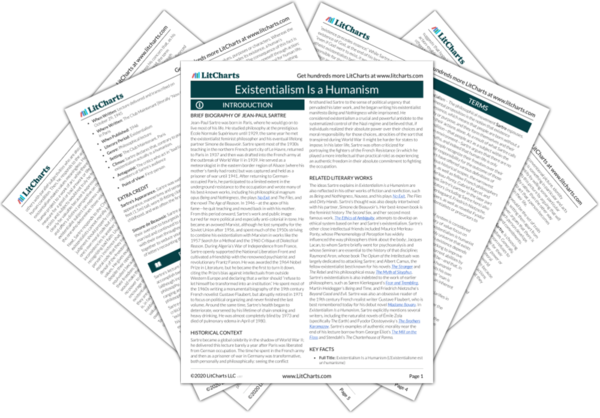Human Condition Quotes in Existentialism Is a Humanism
Man is indeed a project that has a subjective existence, rather unlike that of a patch of moss, a spreading fungus, or a cauliflower. Prior to that projection of the self, nothing exists, not even in divine intelligence, and man shall attain existence only when he is what he projects himself to be—not what he would like to be.

Unlock explanations and citation info for this and every other Existentialism Is a Humanism quote.
Plus so much more...
Get LitCharts A+Man is condemned to be free: condemned, because he did not create himself, yet nonetheless free, because once cast into the world, he is responsible for everything he does.
Historical situations vary; a man may be born a slave in a pagan society or a feudal lord or a member of the proletariat. What never varies is the necessity for him to be in the world, to work in it, to live out his life in it among others, and, eventually, to die in it. These limitations are neither subjective nor objective; rather they have an objective as well as a subjective dimension: objective, because they affect everyone and are evident everywhere; subjective because they are experienced and are meaningless if man does not experience them—that is to say, if man does not freely determine himself and his existence in relation to them. And, as diverse as man’s projects may be, at least none of them seem wholly foreign to me since each presents itself as an attempt to surpass such limitations, to postpone, deny, or come to terms with them.












